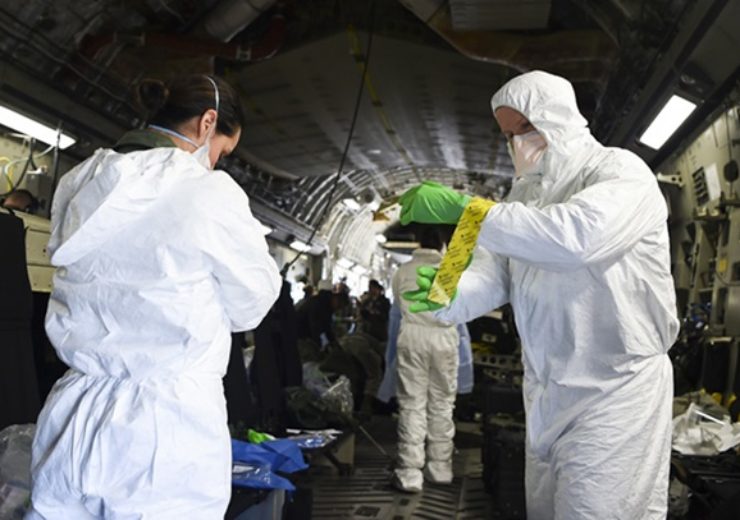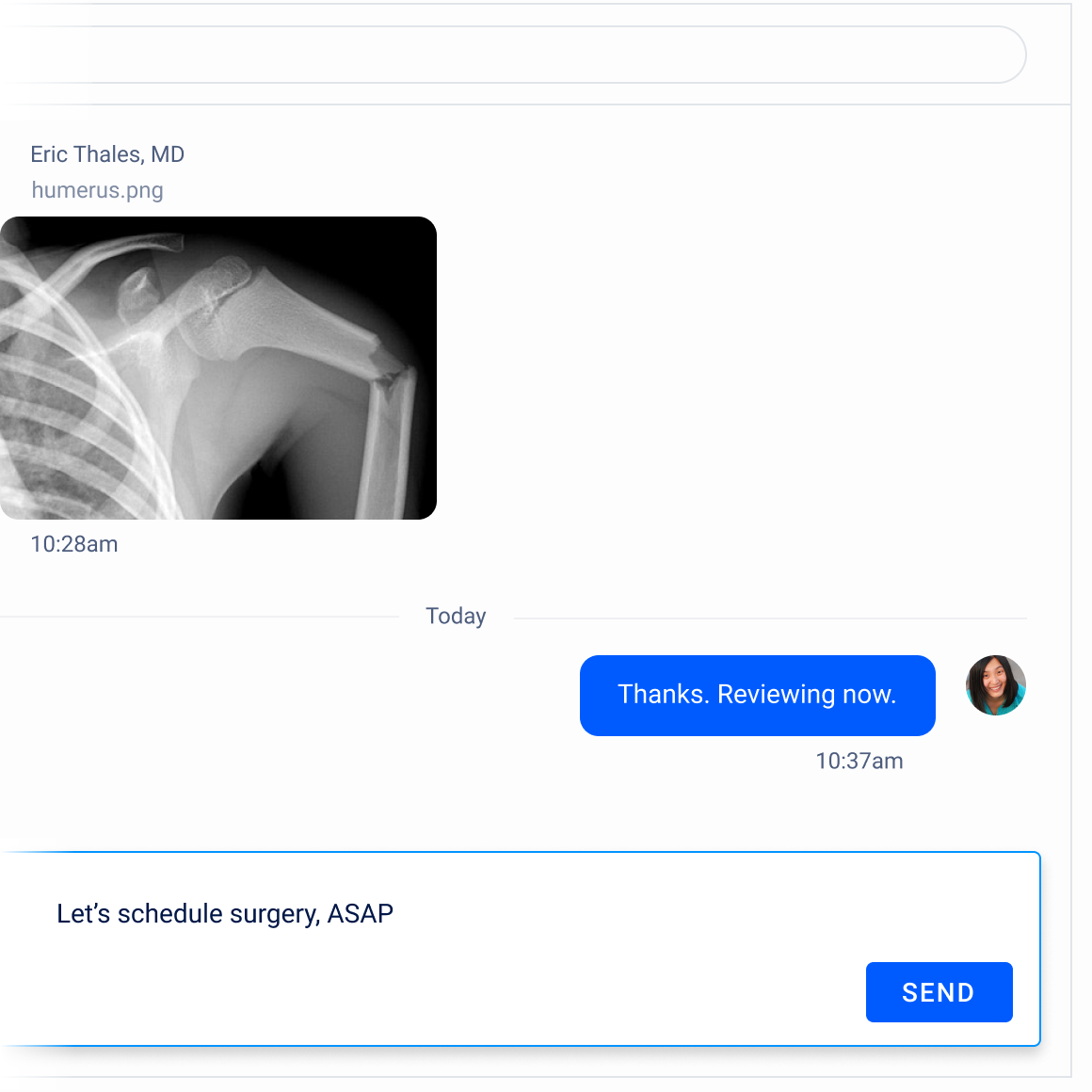The SMS-based platform allows doctors to instantly and remotely communicate with patients, and send them important updates

Despite measures to contain the spread of Covid-19, there are close to 600 confirmed cases in the US - as of 9 March (Credit: US Air Force)
US healthtech firm OhMD has made its text messaging platform free for American healthcare providers to help tackle the coronavirus (Covid-19) spread.
The SMS-based platform allows doctors to instantly communicate with patients, and send them important updates.
Providers can ask patients questions about their travel history, and patients themselves can send a text when they arrive for an appointment so their condition can be remotely assessed before they enter the hospital or GP surgery.
The secure, two-way platform can also allow patients to discuss symptoms, treatment options and other concerns with their doctor while maintaining social distancing — a public health strategy taken to slow down or stop the spread of infection.
OhMD co-founder Ethan Bechtel said: “Healthcare providers are acting as quickly as they can to respond to Covid-19 cases, but the sense of urgency in helping them communicate with patients about virus updates, outbreaks, patient status, and treatments cannot be understated.
“With Covid-19, isolation is critical. OhMD is offering healthcare providers and patients a platform to communicate online without risk of contagion from in-person communications.
“We have taken the most important features from our premium plan and are providing it at no cost to healthcare practices and hospitals until the Covid-19 risk subsides.”
OhMD free messaging platform
OhMD says its platform is already used by 30,000 healthcare professionals in practices and hospitals across all 50 US states.
It also complies with the Health Insurance Portability and Accountability Act (HIPAA) — a piece of US legislation on data privacy and security provisions for safeguarding medical information passed by Bill Clinton in 1996.
OhMD provides its platform as a subscription service — with both free and paid versions available to companies — meaning healthcare providers don’t have to download an app, and can use their existing phone systems.

As well as two-way SMS messaging between provider and patient, OhMD offers live chat features for healthcare websites, and enables forms, surveys and other files to be exchanged remotely.
Healthcare providers can also send notifications to many patients at once — a feature that is particularly pertinent to the Covid-19 outbreak, as it means updates and advice can be sent to many people instantly.
The two-way messaging service also allows secure communication between healthcare staff across hospitals, GP surgeries and pharmacies.
The US response to the coronavirus
On 17 January, in response to the initial outbreak in China, American health authorities began screening passengers arriving from Wuhan at airports.
The first Covid-19 case in the US was reported on 21 January, when a person who had recently travelled to Wuhan tested positive for the virus. This led to the country declaring the situation a public health emergency.
Shortly after, on 31 January, President Donald Trump signed a proclamation banning anyone arriving from China — or anyone who had visited China in the past 14 days – from entering the US.
One of the most significant moments in the American response to the virus so far occurred on 5 February, as the Food and Drug Administration (FDA) approved the emergency use of a test kit for diagnosing Covid-19.

On 29 February the US confirmed its first coronavirus-related death — a Washington man in his 50s reported to have underlying health conditions.
In response, the US increased its travel restrictions to South Korea, Iran and Italy — the three worst-affected countries apart from China at the time.
On 6 March, President Donald Trump signed an $8.3bn “emergency coronavirus response” spending bill to strengthen the country’s testing capabilities and counter the spread of the disease.
As of 9 March, the Centers for Disease Control and Prevention (CDC) has reported 564 confirmed Covid-19 cases and 22 deaths in the US.
